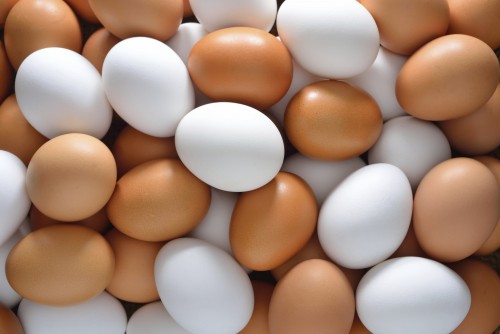[caption id="attachment_4853" align="aligncenter" width="500"] Egg[/caption]
Egg[/caption]
High cholesterol content eggs are now making a bit of a comeback.
Eggs, one of the most nutrient-dense foods available. One egg provides 13 essential nutrients, all in the yolk
While it�s true that egg yolks have a lot of cholesterol�and so may weakly affect blood cholesterol levels--
Eggs also contain nutrients that may help lower the risk for heart disease, including protein, vitamins B12 and D, riboflavin, and folate.
With about 70 calories in one large egg, they're a great source of protein that helps stabilize blood sugar levels and provides structure to the body.
Egg protein is also high quality, providing all the essential amino acids.
Egg yolks also contain antioxidants that may reduce the risk of age-related macular degeneration and cataracts, and protect against heart disease, stroke and some cancers.
One large egg is also an excellent source of selenium, an antioxidant mineral that fights cell damage caused by free radicals and supports thyroid and immune function and riboflavin, a B vitamin that helps turn carbohydrates into energy, and vitamin D, important for strong bones and teeth.
Eating three eggs a week could significantly increase a man�s chance of dying from prostate cancer, researchers have warned.
Experts in the U.S. claimed that men who consume more than two and a half on a weekly basis were up to 81 per cent more likely to be killed by the disease.
They suggested the damage may be done by the large amounts of cholesterol or choline � a nutrient that help cells to function properly � that are found in eggs.
Cooking methods
When you prepare the eggs, you should also pay attention to the way you cook them, says Zumpano. �If you fry them, the oil that you add is only going to contribute to your saturated fat for the day,� she says. She says these drier or oil-free cooking methods are preferred:
Poaching
Boiling
Pan-frying with a cooking spray
You should avoid putting salt on your eggs to keep the amount of sodium in your diet at the recommended level.
One teaspoon of salt is all you need per day.
Try filling out a one-egg breakfast with fruit or other plant-based foods such as whole-grain porridge or bread.











